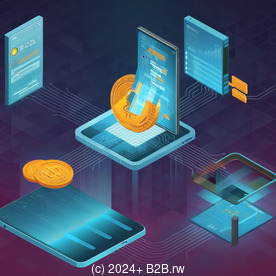
Understanding Online Learning Management Systems




Overview of Online Learning Management Systems (LMS)
Online Learning Management Systems (LMS) have transformed the educational landscape by providing a versatile digital platform for managing, delivering, and tracking a wide range of learning activities. Designed for educational institutions, corporate training programs, and independent educators, these systems centralize all aspects of the learning processfrom content delivery and learner interaction to assessments and performance analytics.
The importance of LMS has grown significantly, particularly in the context of the global shift to remote learning necessitated by recent events. With increasing numbers of institutions and organizations adopting online and blended learning approaches, the role of LMS has become more central than ever. These platforms facilitate equitable access to educational resources, allowing learners from various backgrounds to engage with high-quality content irrespective of their geographical location.
Furthermore, LMS platforms provide significant advantages for organizations looking to implement blended learning models that combine traditional classroom instruction with flexible online components. This integration enhances learners' accessibility and adaptability, accommodating different learning styles and paces. In this context, an LMS serves as a crucial facilitator of modern education, streamlining teaching methodologies and greatly expanding learning opportunities around the world.




The Multifaceted Perspectives on LMS Platforms
Economic Impact
Examining the economic implications of adopting an LMS reveals substantial benefits associated with investment in digital learning infrastructure. Through minimizing the expenses tied to traditional education and trainingsuch as physical materials, instructor salaries, and venue costsorganizations can realize measurable cost savings. These savings can be reinvested into enhancing educational quality or exploring other strategic initiatives.
Moreover, the scalable nature of LMS permits institutions to serve a vastly larger audience without a linear increase in costs. For example, once an LMS is implemented, an organization can provide training to thousands of employees globally without proportionally increasing the training budget. The flexibility offered by LMS also maximizes workforce productivity; employees can access training materials at their convenience, allowing them to integrate learning seamlessly into their work schedules.
Additionally, organizations can refocus their training efforts in response to emerging market trendsquickly adapting content and courses to meet the evolving demands of their industry. This adaptability not only safeguards job roles but also promotes employee engagement and retention by demonstrating an investment in continuous professional development.
Technological Advancements
The ongoing technological progression has fundamentally shaped LMS development, enabling these platforms to offer an array of innovative features that significantly enhance the learning experience. Current LMS are not just repositories of information; they employ advanced technologiesincluding artificial intelligence (AI), virtual and augmented reality (VR/AR), and robust analyticsto create dynamic and personalized learning pathways.
For instance, artificial intelligence is increasingly utilized in LMS to provide adaptive learning experiences tailored to individual users. By analyzing past performance and engagement levels, AI-driven systems can recommend specific learning resources, assignments, or pathways that align well with students strengths and weaknesses. The result is a customized learning experience that can lead to improved learner outcomes.
Additionally, mobile-optimized LMS empower learners to access educational materials anywhere and anytime from their devices, further supporting informal learning. Integration with real-time collaboration toolslike video conferencing and discussion forumsfosters a sense of community among learners, creating richer educational interactions that contribute to knowledge retention.
Social and Cultural Considerations
From a social perspective, LMS platforms address the diverse learning needs of various populations, allowing educators to create inclusive, equitable learning environments. By accommodating different educational backgrounds and learning styles (such as auditory, visual, and kinesthetic learning preferences), LMS enhance the accessibility of educational resources.
Through features like multilingual support, text-to-speech functionality, and customizable content, these systems can cater to a global audience. This cultural adaptability is essential in todays interconnected world, where learners from various backgrounds expect relevance and contextual understanding in educational materials.
Moreover, LMS enable culturally relevant pedagogy by allowing educators to localize course materials and incorporate culturally diverse examples. Educational content that resonates with students' lived experiences not only fosters engagement but also promotes a sense of identity and belonging among learners.
Legal Implications
The potential legal implications of deploying an LMS must also be taken into account. Organizations are required to ensure adherence to various data protection regulations, such as the GDPR (General Data Protection Regulation) in Europe and COPPA (Children's Online Privacy Protection Act) in the U.S. when dealing with underage learners. Protecting learners' private information and maintaining data integrity builds trust between institutions and users.
Furthermore, compliance with accessibility lawssuch as the Americans with Disabilities Act (ADA)requires that all educational content and resources available through an LMS are accessible to all learners, including those with disabilities. This necessitates thoughtful design processes to ensure content is compatible with assistive technologies like screen readers.
Historical Context
The evolution of Learning Management Systems can be traced back to the early days of e-learning in the late 20th century, when basic course management systems began to emerge. Initially rudimentary, these platforms were mainly used for distributing course materials. However, as digital technologies advanced, so did LMS capabilitieswhich now encompass everything from multimedia content delivery to sophisticated tracking systems that monitor learner progress.
The expansion of the internet and digital technologies has accelerated the growth and functionality of LMS. The rise of open-source LMS such as Moodle in the early 2000s democratized access to high-quality educational systems, allowing institutions of varied sizes to implement effective online learning solutions. The trajectory of LMS development reflects the increasing integration of technology in education and the demand for flexible, learner-centered approaches to teaching and training.




In-depth Analysis of Learning Management Systems
When contemplating the adoption of an LMS, organizations must meticulously evaluate a variety of features that align with their educational and training goals. Essential functionalities commonly include course authoring tools, learner assessment modules, discussion forums, and comprehensive reporting capabilities. Platforms such as Moodle, Canvas, and Blackboard focus on educational institutions, while corporate-oriented solutions like TalentLMS and Cornerstone OnDemand cater to the business training environment.
The advantages of using an LMS extend far beyond mere content distribution to promote enhanced engagement and efficiency, including:
- Centralized Learning Management: LMS platforms aggregate all learning materials and resources into a single integrated system, making it easy for learners to locate and interact with relevant content.
- Customizable Learning Paths: Learners are treated to personalized experiences tailored to their unique preferences and requirements, thereby accommodating diverse learning approaches.
- Enhanced Tracking and Reporting: Administrators benefit from real-time analytics that enable monitoring of learner engagement and performance, allowing for timely intervention when necessary.
- Broader Accessibility: Providing 24/7 access to educational materials enhances overall flexibility and promotes learner engagement across time zones and personal schedules.
Additionally, LMS platforms often allow for seamless integration with other educational technologies. This capability fosters the creation of a comprehensive educational ecosystem that aligns precisely with institutional needs. For example, by combining an LMS with web conferencing solutions such as Zoom or Microsoft Teams, educators can conduct engaging live sessions that encourage interaction and foster meaningful educational dialogues.




Real-World Applications of LMS
Various sectors have successfully harnessed the power of LMS to improve their educational and training outcomes. Corporations, for example, actively utilize LMS solutions for onboarding new employees, ensuring they receive the necessary training efficiently and effectively. This practice not only expedites integration into the company but also allows employees to access resources at their fingertips, leading to heightened confidence and satisfaction.
Similarly, educational institutionsfrom primary schools to universitieshave adopted LMS to facilitate both hybrid and fully online course offerings. This approach empowers students to engage with course materials, participate in discussions, and submit assignments at their convenience, resulting in improved educational outcomes and learner satisfaction.
- Corporate Training: Large enterprises often employ LMS solutions to ensure compliance training is completed efficiently, minimizing workplace disruptions while enhancing employee knowledge.
- Higher Education: Colleges and universities leverage LMS to deliver engaging online courses that supplement traditional lecture formats, ultimately enhancing overall student learning experiences.
- K-12 Education: Schools harness LMS technology for remote learning initiatives, facilitating seamless transitions during unexpected disruptions, such as the COVID-19 pandemic.
Moreover, specialized sectors, such as healthcare and technology, have derived substantial benefits from LMS by providing virtual training for certifications, compliance, and ongoing professional development. For instance, hospitals utilize LMS for mandatory training in protocols and procedures, ensuring all staff remain compliant and knowledgeable about best practices.




Conclusion: The Future of Online Learning Management Systems
The future of Online Learning Management Systems appears exceedingly bright as educational paradigms continue to shift towards flexible, on-demand learning solutions. With ongoing advancements in technologysuch as machine learning, VR/AR, and mobile accessibilitythe capabilities of LMS are poised to expand dramatically.
Educational institutions and organizations alike are recognizing the critical importance of robust LMS in facilitating personalized and engaging learning experiences. As more organizations acknowledge the value of lifelong learning, LMS platforms will increasingly become central to training and educational strategies, ensuring that individuals possess the skills and knowledge required in an ever-evolving job market.
Furthermore, the ability of LMS to track competencies and frame learning journeys will aid organizations in preparing a future-ready workforce. Consequently, the reliance on innovative LMS platforms will only intensify, making them indispensable components of the educational ecosystem moving forward.
Unlock Your Learning Potential Today
Are you prepared to elevate your educational initiatives? Our premium Online Learning Management System is now available for just $749. Dont let this opportunity to enhance your learning experience pass you by! Please proceed to our Checkout Gateway and utilize our secure payment processor to complete your transaction. After your purchase, feel free to get in touch with us by email or phone to share your payment details and discuss how we can best support you. We look forward to assisting you on your educational journey!
